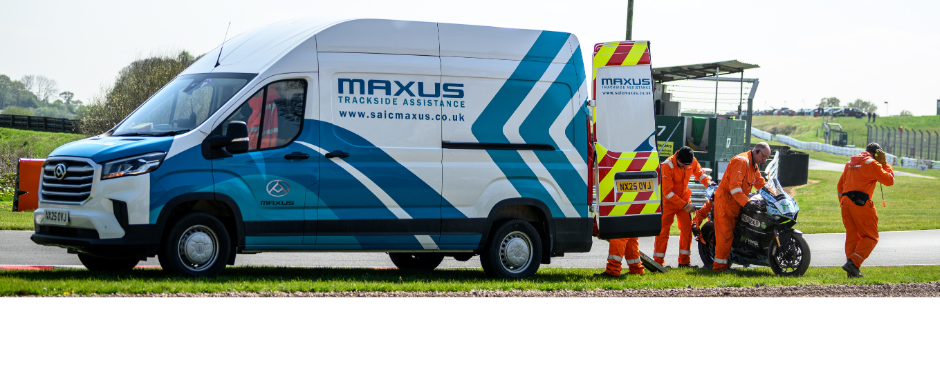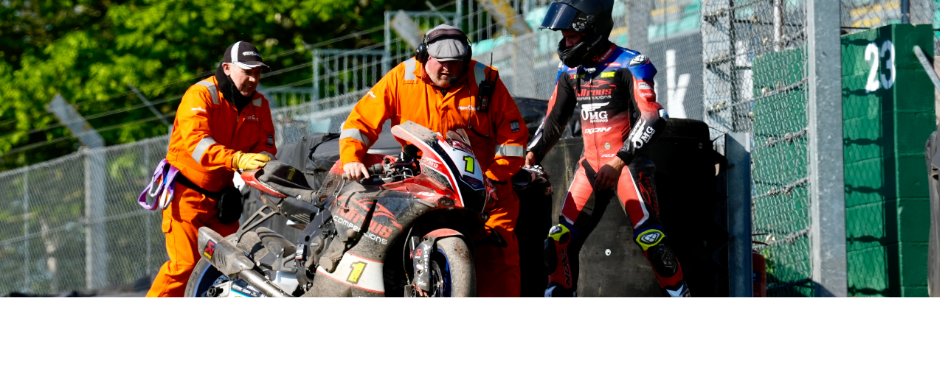FAQs
We appreciate that many people will potentially have many questions about Racesafe, the work we do, the website and any perks of the job; so please find below a list of Frequently Asked Questions which you may find useful. Of course, if there is something you want to ask not listed below - drop us an e-mail.
- Question: I am a new / existing member, but don't have a username or password for the members only area. Can I get one?
- Answer: Check your email accounts SPAM folder. The email will be from noreply@racesafe.org and will appear as "Racesafe". You need to add this email address to your safe list. If there are no e-mails, go to the login page and click 'Forgotten Password'; type in your e-mail address and wait for an email reply.
If none of the above work, please email technical@racesafe.org with your Marshal number and full name. - Question: I can recover my password, but what is my username?
- Answer: Your username is the same as your Marshal ID number. This will be included in e-mails from the Racesafe system.
- Question: Who can be a member of Racesafe?
- Answer: Membership is open to anyone over the age of 16. Those aged 16 – 18 can join and perform reduced duties, provided they are accompanied to the meeting by a parent or guardian.
- Question: Is Racesafe membership (becoming a Marshal) free?
- Answer: No. There is a one off joining fee of £25. This will cover the cost for training and overalls.
- Question: Do marshals just clear up after incidents?
- Answer: That is certainly part of the job but they are there to prevent incidents in the first place. Observing for machine problems before or during track sessions can prevent an incident from occurring in the first place. Machines are flagged-off at most meetings after a marshal has spotted a problem, of which the rider was unaware. Oil leaks are pretty typical; marshals usually spot the smoke before anyone else does.
Blue flagging, removing debris from the track, and cleaning spillages before the cause a problem are other examples of preventative marshalling.
- Question: If I join Racesafe do I have to go to every meeting?
- Answer: No. A few Marshals and most of the senior officials do go to every meeting but most marshals don't. You say on the availability form, (which you are sent at the beginning of the season) which meetings you think you can come to. All we ask is that you attend when you say you will, or let us know in good time if you can't make a meeting.
- Question: Are Marshals always needed?
- Answer: There are always a minimum number of marshals needed to run the event, but at nearly all meetings extra marshals would be welcome. A few events, e.g. World Superbike rounds, are so popular that there are more volunteers than places available (World Championship organisers limit the number of passes) so some sort of selection system has to be used.
- Question: Can I just marshal the World Championship rounds?
- Answer: No. World championship round organisers rightly expect a high standard of marshalling. To marshal at WSB you must have a reasonable amount of experience at BSB which is why we introduced accreditation. Generally, marshals who are accredited and have done the most BSB rounds get picked first. Allowing marshals to do no meetings all year and then just come to a World Championship round would be unfair to the regulars who turn up every weekend, and is not allowed.
- Question: What do I need to do so I can marshal with Racesafe?
- Answer: You have to attend a training day to start with, you will then be required to take an online re-accreditation every three years.. If you have never done any marshalling before you must do a New Marshals training day. Then you need to fill in your availability form online.
- Question: Can I just marshal particular circuits?
- Answer: You can if you want to, but once you have trained and have your Racesafe photo pass, you can marshal at any BSB meeting, at any circuit, that season.
- Answer: In the past it would have depended on your experience, but following on from the new requirements from our insurers, all marshals new to Racesafe must attend a New Marshals training day, regardless of previous experience. The reason for this is that BSB procedures are based on FIM recommendations and include, for example use of the Safety Car, strict use of the blue flag and riders being allowed to remount after a fall. This differs from meetings run to ACU rules. All Racesafe marshals need to know how these work.
- Answer: Yes.
- Question: When do you have to arrive at the circuit?
- Answer: You have to be at the track side at least 30 minutes before practice starts, (typically, but not always, 9am) but you have to allow time to sign on first. A good rule of thumb is to aim arrive at the circuit 90 minutes before practice starts. The signing-on times are specified on the imminent events page.
- Question: Do you need to marshal all days of a three day event?
- Answer: Bear in mind that the minimum number of marshals is the same for practice day and race day. Also remember you will be working as part of a team, so if you are not there on a particular day when you said you would be, the other members of the team will have to do your job. For this reason, we are only able to accept marshals who are available for at least two days of a three day meeting, one of which must be race day.
- Question: Is Marshalling dangerous?
- Answer: If motor racing was not inherently dangerous then marshals would hardly be needed. In recent years a number of unfortunate incidents have demonstrated that marshals can be at risk. A great part of the training concerns doing the job without unnecessary risk to yourself or the rest of your team. All marshals have to sign an indemnity form before going on circuit, so you are covered by insurance, but we'd rather you didn't need to claim.
- Question: Do Marshals get paid?
- Answer: No.
- Question: Do Marshals have to buy tickets?
- Answer: No. Marshals are not spectators, they are working. We do not charge them for helping support the event.
- Question: On my first ever meeting, will I be thrown in at the deep end of left on my own?
- Answer: Definitely not! At your first meeting the Chief Marshal will make sure that the Incident Officer (IO) who is in charge of the team of marshals on your section is aware of your inexperience. He or she will keep an eye on you and make sure that you are teamed up with at least a couple of experienced people. Generally there is a hugely friendly atmosphere at meetings, especially on the campsites (and the circuit bars).
- Question: Where do I go when I arrive on circuit?
- Answer: Sign on. All marshals need to sign on for insurance purposes. Details of sign on are published on the Marshals panel before each event.
- Question: What do pit lane marshals do as opposed to track side?
- Answer: Keep things organised and safe, mostly in pit lane and on the grid at the start of races. Pit lane marshalling is an essential job, and pit lane marshals tend to be very visible on the starting grid, so need to work efficiently. It is generally more planned and probably less hazardous than track marshalling, so if you would like to be involved, but have some concerns about how you would cope with the hurly-burly of an incident prone corner, then the pit lane might be the place for you.


